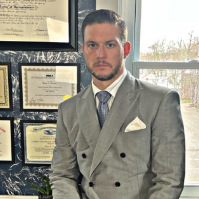Hillsdale DUI-DWI Lawyer, Michigan
Sponsored Law Firm
-
 x
x

Click For More Info:
-
Hannawa Law PC
2909 E Big Beaver Rd Troy, MI 48083» view mapCriminal Defense Law Full-service legal experts on your side.
Whatever the specific details of your situation may be, our attorneys are ready to fight for you and guide you through every step of the process.
248-466-0770
Not enough matches for Hillsdale DUI-DWI lawyer.
Below are all Hillsdale Criminal lawyers.
Leo J. Foley
Lawsuit & Dispute, Family Law, DUI-DWI, Bankruptcy & Debt
Status: In Good Standing Licensed: 43 Years
John M. Macdonald
Estate, Family Law, Criminal, Credit & Debt
Status: In Good Standing Licensed: 44 Years
James D. Hayne
Accident & Injury, Criminal, Divorce & Family Law, Estate, Lawsuit & Dispute
Status: In Good Standing Licensed: 54 Years
Anne Marie VanderBroek
State & Local Agencies, Government, Criminal, Collection
Status: In Good Standing Licensed: 7 Years
Andrew Frederick Fink
Municipal, Criminal, Civil Rights, Limited Liability Companies
Status: In Good Standing Licensed: 14 Years
 Nickolas Hannawa Troy, MI
Nickolas Hannawa Troy, MI AboutHannawa Law PC
AboutHannawa Law PC

